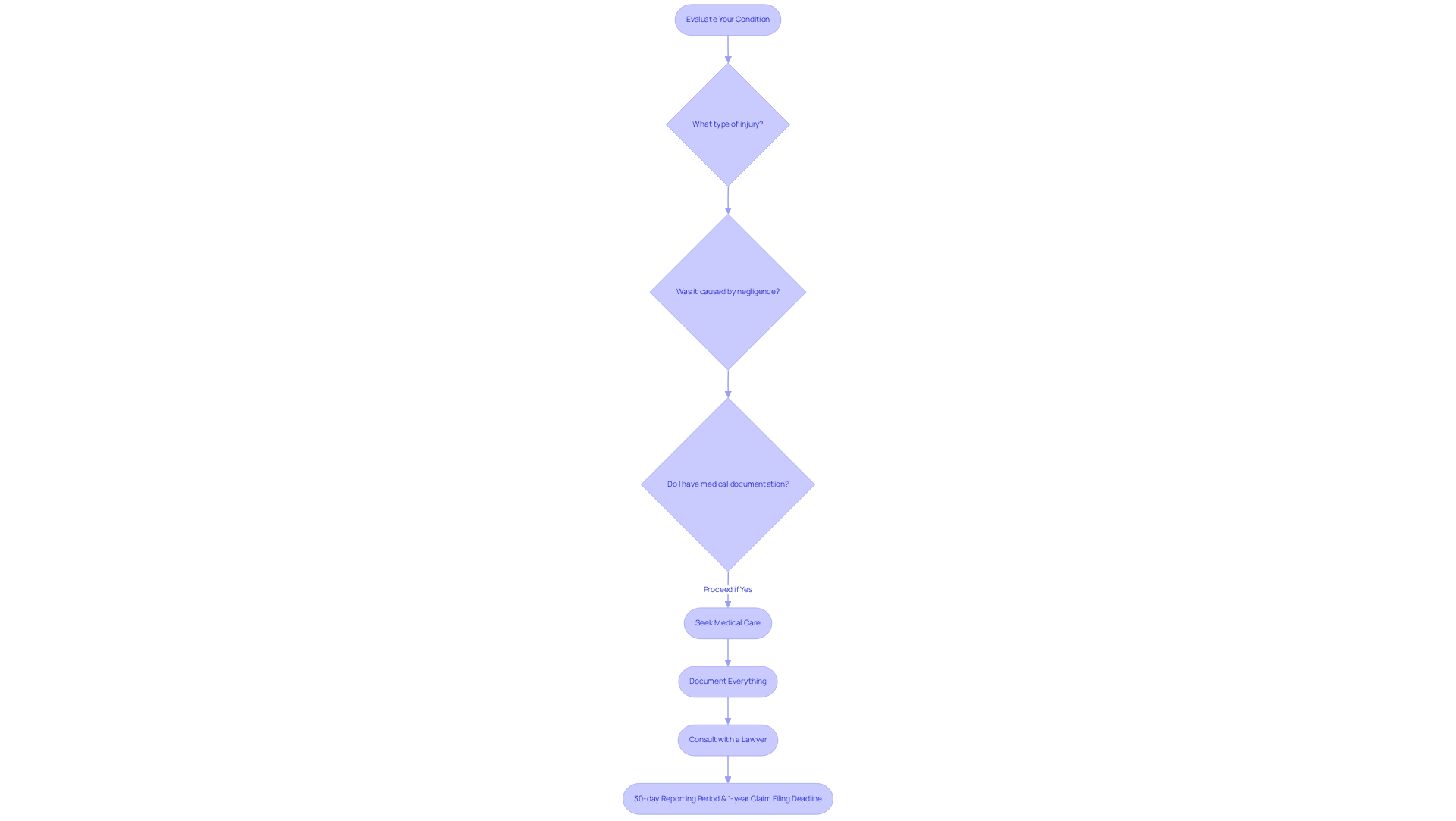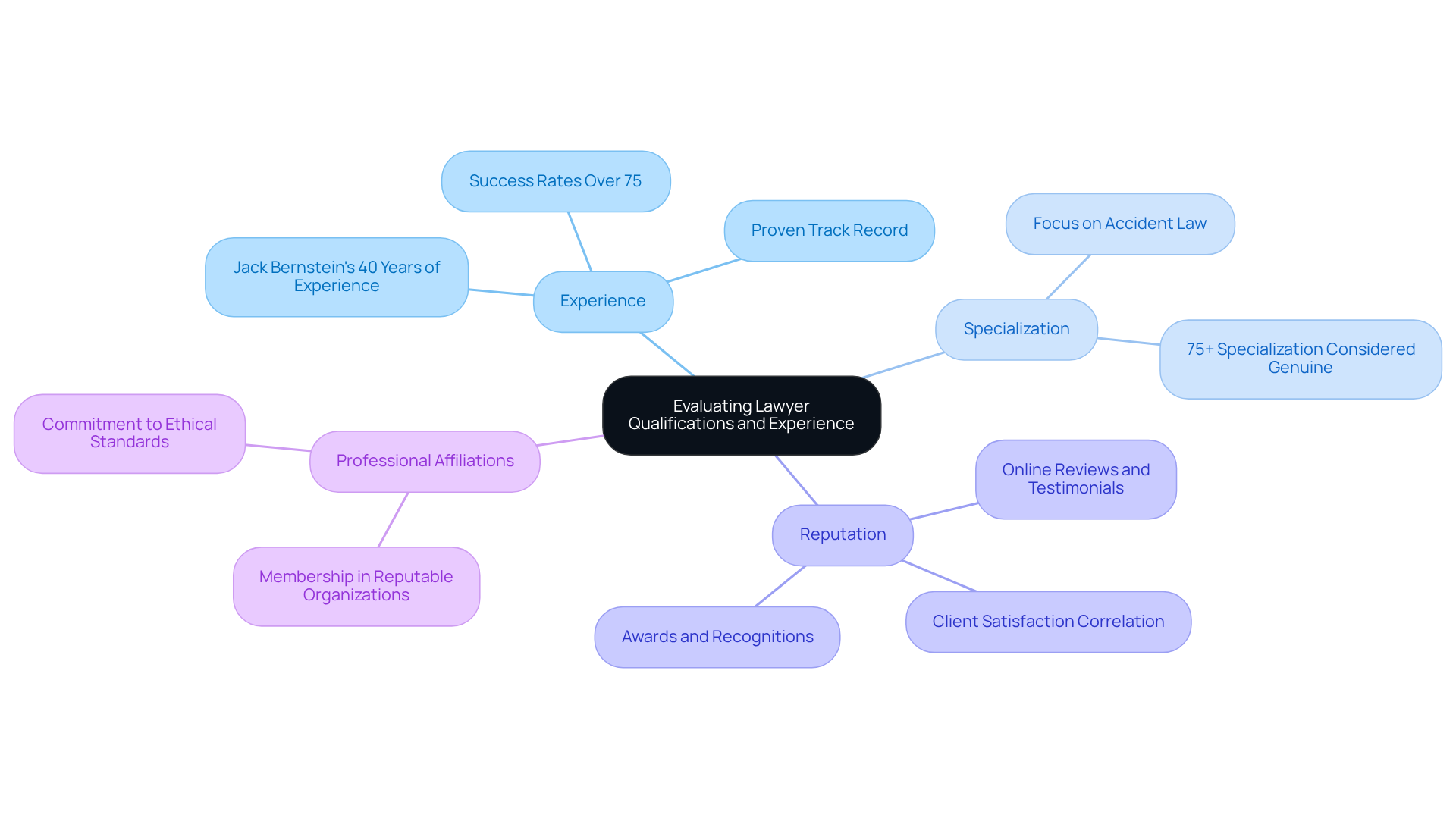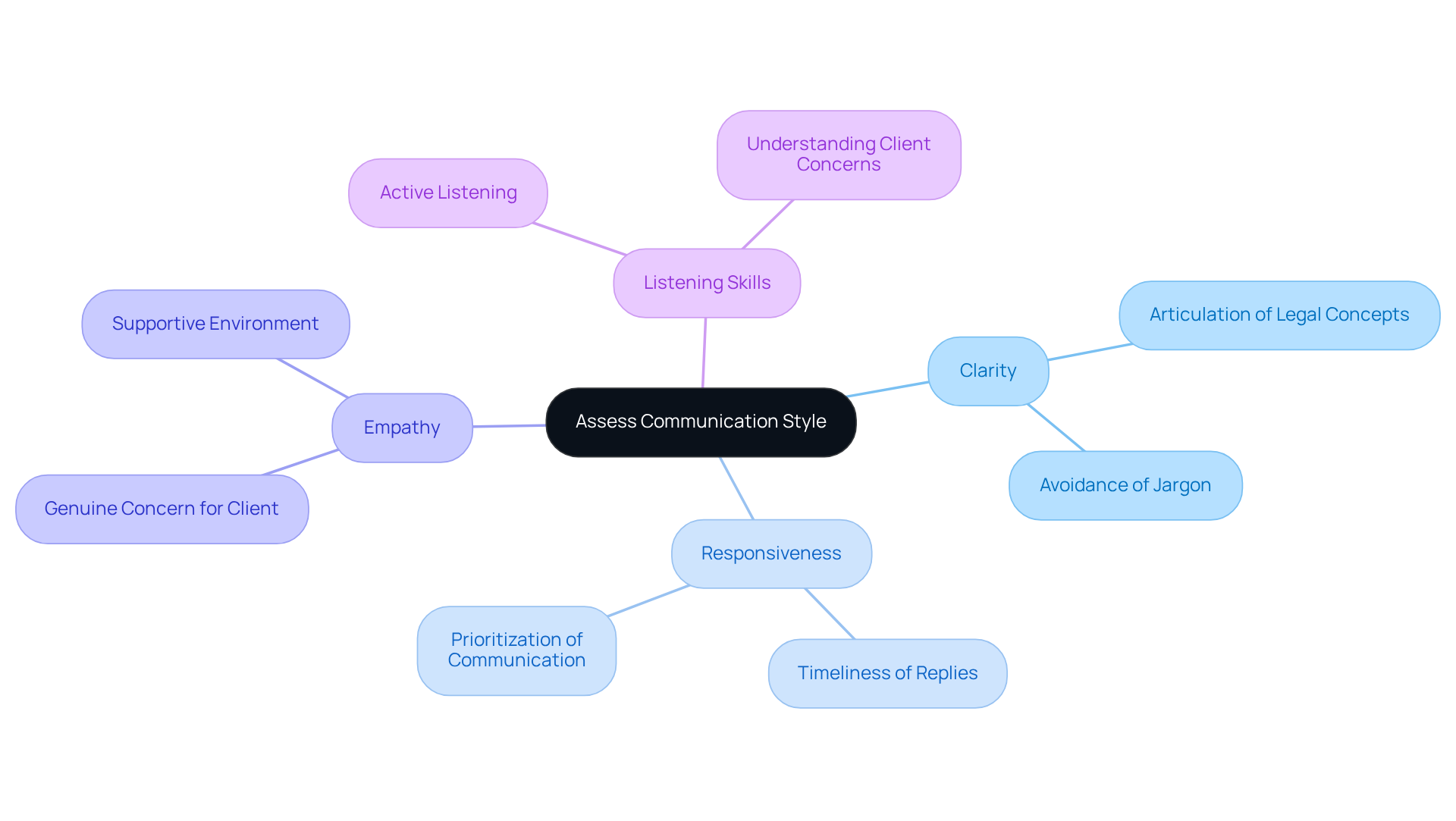Overview
Choosing a personal injury lawyer in Charlotte can feel overwhelming. You’re not alone; many individuals struggle with this important decision. Start by evaluating your specific injury needs. Assess the qualifications and experience of potential lawyers. Consider their communication styles and understand their fee structures.
It's crucial to grasp these factors—like an attorney’s specialization, responsiveness, and contingency fee arrangements. This understanding is essential for securing competent legal representation.
Remember, you deserve the support you need throughout this legal process. We’re here to fight for you.
Introduction
Choosing the right personal injury lawyer is crucial—it can significantly impact the outcome of your case. Yet, many individuals find themselves overwhelmed by the selection process. This guide is here to help you navigate your options in Charlotte, ensuring you secure competent representation that aligns with your unique needs.
With so many factors to consider—experience, communication style, and fee structures—you may wonder: how can you confidently identify the best attorney to advocate for your rights and interests?
We're in this fight with you.
Identify Your Personal Injury Needs
Begin by evaluating the type of your condition and the circumstances surrounding it. Ask yourself:
- What type of injury did I sustain? (e.g., physical, emotional, financial)
- Was the injury caused by someone else's negligence or intentional actions?
- Do I have medical documentation to support my claim?
Once you have a clear understanding of your situation, it’s crucial to take immediate action. Seek medical care even if you feel well—some conditions may not be immediately noticeable. Document everything: report the incident to your supervisor in writing, take photos of the site and your injuries, and gather contact information from any witnesses. This documentation will be vital for your case.
Additionally, consult with a lawyer before speaking with insurance companies. They often act quickly and have investigators on-site, so having legal representation is essential to protect your rights. Remember, you have only 30 days to report your condition and 1 year to file a formal claim. Acting swiftly is crucial to preserve evidence and witness information. This clarity will assist you in locating a lawyer who focuses on harm claims, especially those related to , guaranteeing you obtain the compensation you deserve.

Evaluate Lawyer Qualifications and Experience
When evaluating potential personal injury lawyers, consider these key factors:
- Experience: Look for attorneys with a proven track record in handling cases similar to yours. In North Carolina, skilled attorneys specializing in accidents often have extensive experience, with many achieving success rates over 75%. This experience can make a significant difference in your case.
- Specialization: It's crucial to choose an attorney who focuses on accident law. This specialization ensures they possess the specific knowledge and skills needed to navigate the complexities of your situation effectively. A dedicated focus on personal injury law can greatly influence your case's outcome.
- Reputation: Conduct thorough research on online reviews, testimonials, and any awards or recognitions the attorney has received. A strong reputation often correlates with a successful practice, as satisfied clients tend to share their experiences. Seek out attorneys with numerous positive reviews, reflecting their effectiveness and client satisfaction.
- Professional Affiliations: Check if the attorney is a member of reputable professional organizations, like the American Association for Justice. Membership in such groups signifies a commitment to ethical standards and ongoing education, enhancing their credibility as a lawyer specializing in accidents.
By focusing on these elements, you can make a more informed choice when selecting a personal injury lawyer in Charlotte. Remember, you deserve the best representation for your case, and we’re here to fight for you.

Assess Communication Style and Client Rapport
When meeting with prospective personal injury lawyer Charlotte, it’s crucial to assess their . Here are key factors to consider:
- Clarity: Notice if the lawyer articulates legal concepts in a way that’s easy to understand. Avoid attorneys who lean on complex jargon without offering explanations.
- Responsiveness: Pay attention to how quickly they respond to your inquiries. An effective attorney prioritizes prompt communication, especially during stressful times.
- Empathy: Evaluate the attorney's genuine concern for your situation. A sympathetic lawyer fosters a supportive environment for discussing sensitive aspects of your case, which is vital for building trust.
- Listening Skills: Observe whether the attorney actively listens to your concerns and questions. This skill is a strong indicator of how they will manage your case and respond to your needs moving forward.
Research shows that clients perceive attorneys who demonstrate empathy as more effective, significantly influencing their decision-making process. Many clients express that empathy is a critical factor in their choice of attorney, underscoring the necessity of emotional support during challenging legal situations. By evaluating these communication traits, you can better determine which attorney will provide the compassionate and competent representation you deserve.

Understand Fee Structures and Payment Options
Before hiring a personal injury lawyer Charlotte, it's essential to clarify their fee structure.
Most personal injury lawyers, including a personal injury lawyer Charlotte, operate on a contingency fee basis, meaning they only receive payment if you win your case. At Vasquez Law Firm, you pay nothing unless we win. This ensures that financial constraints never prevent you from seeking the justice you deserve.
- Retainer Fees: While many attorneys do not require retainer fees, some may ask for an upfront payment as a prepayment for services. It's crucial to understand the terms of this arrangement and how it will affect your overall costs.
- Additional Costs: Be sure to inquire about any additional expenses that may arise during the legal process. These can include court fees, expert witness fees, and costs associated with obtaining medical records, which can add up quickly. Having a clear understanding of these expenses is essential.
- Payment Plans: Ask if the lawyer offers flexible payment options for clients facing financial constraints. At Vasquez Law Firm, we provide tailored payment plans to accommodate your financial situation. Understanding these details upfront can help you avoid later and ensure that you can access the legal support you need without added stress.

Conclusion
Choosing the right personal injury lawyer in Charlotte is not just a step; it’s a critical move toward securing the compensation and support you need after an injury. This process requires you to identify your personal injury needs while evaluating the qualifications, communication style, and fee structures of potential attorneys. Each of these elements is vital in ensuring that your chosen legal representation aligns with your unique circumstances and expectations.
Acting swiftly after an injury is essential. Thorough documentation is necessary, and selecting an attorney with relevant experience and a strong reputation can make all the difference. Understanding the lawyer's communication style and fee arrangements will significantly impact your overall experience and the outcome of your case. By focusing on these critical factors, you empower yourself to make an informed decision in your pursuit of justice.
Ultimately, finding a personal injury lawyer should be approached with care and diligence. Taking the time to assess your personal needs, lawyer qualifications, and communication dynamics enhances your chances of a successful outcome and provides the emotional support you need during challenging times. Prioritize these steps to ensure that your legal representation is not only competent but also compassionate and responsive to your personal circumstances. Remember, we’re here to fight for your family, and your future matters to us.
Frequently Asked Questions
How should I begin identifying my personal injury needs?
Start by evaluating the type of injury you sustained (physical, emotional, financial) and the circumstances surrounding it, including whether it was caused by someone else's negligence or intentional actions.
What should I do immediately after sustaining an injury?
Seek medical care even if you feel well, as some conditions may not be immediately noticeable. Document everything related to the incident, including reporting it in writing to your supervisor, taking photos of the site and your injuries, and gathering contact information from witnesses.
Why is documentation important for my personal injury case?
Documentation is vital because it supports your claim and helps preserve evidence and witness information, which can be crucial for your case.
Should I consult a lawyer before speaking with insurance companies?
Yes, it is essential to consult with a lawyer before speaking with insurance companies, as they often act quickly and have investigators on-site. Legal representation can help protect your rights.
What are the time limits for reporting and filing a personal injury claim?
You have 30 days to report your condition and 1 year to file a formal claim.
How can I find a lawyer who specializes in personal injury claims?
Having clarity about your situation will assist you in locating a lawyer who focuses on harm claims, particularly those related to workplace accidents, ensuring you obtain the compensation you deserve.




